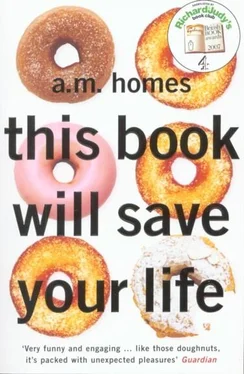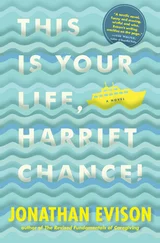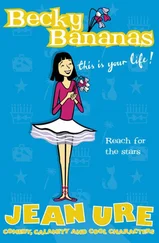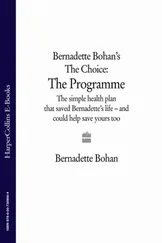"You know you can call me anytime."
"If I die, you're in charge of the book."
"You're not going to die."
"Bottom drawer."
COMING BACK from the airport, Richard finds the roads crowded, people leaving, not running but flocking, their cars piled high with stuff, the air is charged with drama and smells like barbecue. The fire is burning closer to Malibu.
When Richard gets back to the beach, Ben is gone. He knows it right away — the presence of absence. There's no note, no message on the machine. He calls the other house, checks the messages: the exterminator; the painter; Patty, the 911 operator, "checking in." "We haven't heard from you in a while, so I'm assuming you're feeling better — which is a good thing. If I remember right, you're living in Malibu. I heard things down there are really bad with the fire and they're expecting some wave activity — from storms offshore. As a 911 worker, I'm supposed to be cool, detached, but shit like this makes me really nervous."
Nothing from Ben.
Richard can't stay there — he can't just sit, it's too awful. He drives to Anhil's. The air is better there.
"I met your wife," Anhil says, eyes twinkling.
"Ex-wife," he says.
"Very nice," Anhil says.
"Did Ben tell you he was leaving?" Richard asks Barth.
"Before today? No," Barth says. "You shouldn't take it personally, it's just the way he had to do it. He had a really good summer, he could have stayed with you forever."
"I followed Ben up to your house; the little Bug, she is in the garage," Anhil says. "He let me drive her — she is a happy, smiling car. I laughed the whole time I was driving. I took the flower from the dash." He points to a gerbera daisy in a juice glass on the counter. "I did not want her to wilt."
"Don't be mad," Barth says.
"I'm not mad," Richard says, angrily, "I'm hurt."
"Have a donut," Anhil says. "It will make you comfortable."
The idea of the donut reminds him of Lillian — visiting Lillian will make him feel better. Not thinking about how bad he feels will make him feel better.
From the car, en route to DuPar's at the Farmers Market, he calls Cynthia.
"Want to have lunch?" she asks. "The weather guy just blew me off. He had to prepare a special report on the wildfire and the offshore storms — it's a weather extravaganza."
"I'm all the way downtown. How about dinner?"
"I wish I could," she says. "But Meagan's coming; it's our first mother-daughter sleepover. I'm really excited, I bought stuff to bake cookies. I'm going to be a mom again. I'll call you later," she says.
At DuPar's he buys a lemon-meringue pie, and then goes to the home. Lillian is alone in her room.
"Hello, Lillian," he says.
"Who are you?"
"I'm a friend of Fred's — we met the other day at the memorial service."
"I thought the other guy was coming, the cute one."
"He had to go out of town."
"Are you two lovers?"
He's surprised.
"No." He laughs. "I'm divorced."
"You'd make a good couple."
"I brought you pie," he says.
"Well, let's have it already," she says.
All he's got for serving it is a plastic knife and some forks, and a couple of Styrofoam plates. He starts to cut a slice. "Bigger," she says, and he moves the knife. Richard looks at Lillian, who gives him the eye that she wants it bigger still.
"Okey-dokey," he says, slicing the pie.
"Delicious," she says, "absolutely delicious." She savors each bite: the meringue is perfect crispy brown on top, melts in the mouth; the lemon tart, custardy; the crust breaks away. "I'll tell you a secret," she says, picking up crumbs with a bony finger. "I'm diabetic, so it's not like I can eat like this every day."
"Lillian, how could you do this? Why did you say you liked pie if you're not allowed to eat it?"
"So what if I die? I can't live with nothing to enjoy, nothing to look forward to. Don't tell anyone."
"What if you have a problem? I have to tell someone." He wants to run out of the room. He wants someone to come and make her throw up what she's eaten. He grabs the box right out of her hands as she's going back for more.
"I'm not going to have a problem. I managed to live perfectly well for eighty-nine years before any of you came along and, with my luck, I'll probably live eighty-nine more."
"Well, if you do you'll be the first."
On her television he sees footage of the wildfire. "In the effort to contain the fire, one helicopter took an unusual step, landing in a Westwood parking lot, hooking up to a hydrant, filling up, and taking off again. These guys are fearless. Another crew made a water drop on a woman driving down the high canyon road who'd become surrounded by a wall of fire."
"I should get going," he says.
"Does that mean you're not coming back? I never should have told you."
"Oh no," he says, "I'm coming back, but I'm not bringing pie."
"Fine. Bring me some of that candy for diabetics; it's all right except that it gives me the runs if I eat too much."
"Fine," he says, "I'll bring you a little bit of the candy."
On the way out of the home, holding the rest of the pie, Richard runs into the director. He confesses.
"That's why we don't like them to have visitors," she says. "I'll have the nurses check her sugar tonight."
"Thank you."
HE HAS TROUBLE getting home: the traffic is heavy, roads are closed because of the fire. It takes him an hour and a half, crawling.
The air is a yellowy acrid haze — the wind blows particles that stick in the throat.
He is cranky, thinking about Ben. What prompted him to go? Was he ready, or did she make him? Will Richard see him again? When?
"Earlier today, in some areas, canyon residents hid in their swimming pools, breathing through snorkels, while the fire blew over them," the radio reporter says.
"The thermal intensity is amazing, like something out of the Bible," a man adds. "A vacuum of flame, sucking things up, a fire tornado — I saw fire a hundred feet high."
"What's hard for even the most experienced of us to comprehend," the reporter continues, "is how rapidly this fire has spread. There are now thousands of acres involved, dozens of homes already lost. Will all of Los Angeles burn? I've got one of our county commissioners on the line."
"The good news," the commissioner says, "is that there's a natural extinguishing point — the Pacific Ocean."
"We'll be back with you shortly; meanwhile, if you want to donate bottles of water or sandwiches for the firefighters, please bring them to your local L.A. county fire department. The effort will be ongoing throughout the night."
Richard eats the dinner that Sylvia delivered a couple of days ago while watching the news channel. "Night is settling on Los Angeles, and firefighters hope that means that the wildfire which has been raging all afternoon will slow its fury. Earlier today, firefighters got themselves into a tight squeeze when a hill they were standing on shifted, opening a crevasse estimated to be a hundred and fifty feet long and twenty feet deep and four feet wide. Several of the men lost their footing, fell in, and were later rescued. And, in a strange twist, about half an hour ago firefighters working on a Topanga Canyon ridge spotted what they're describing as the infamous mystery cat— a large animal some believe may be the sole surviving saber-toothed cat. The company reported seeing the animal at the top of a hill; the hill then burst into flame — which is what this very dry brush will do — trees exploding before their eyes, and then the cat was gone. No one knows if it was some sort of visual phenomenon or the real thing. So, tonight, up in the hills, everyone is wondering. And, given the danger of both the fire and the animal at large, officials are urging people to stay put."
Читать дальше












